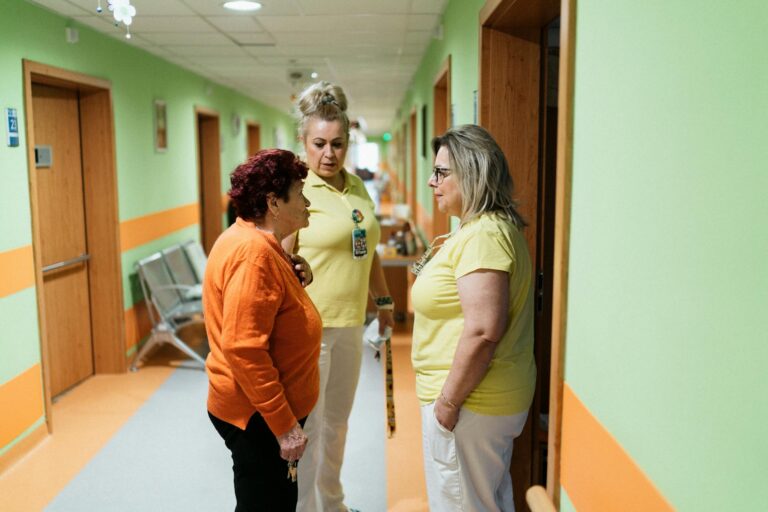Dementia is a progressive brain disorder that primarily affects older adults. It is a condition that causes memory loss, cognitive decline, and changes in behavior. As a loved one of someone with dementia, you may already be familiar with the challenges and difficulties that come with caring for someone with this condition. However, there is another potential threat that can further complicate the care of a loved one with dementia – data breaches.
Data breaches are incidents where sensitive information is accessed or disclosed without authorization. These can occur in various forms, such as hacking, stolen devices, or even accidental exposure of personal information. While data breaches can happen to anyone, individuals with dementia are particularly vulnerable due to their impaired ability to understand and protect their personal information.
In this article, we will discuss the best ways to care for a loved one with dementia in the face of a data breach, including prevention tips, response strategies, and available resources.
Prevention Tips
The saying “prevention is better than cure” holds true in the case of data breaches for individuals with dementia. By taking proactive measures, you can reduce the risk of your loved one’s personal information being compromised.
1. Educate yourself and your loved one
The first step in preventing a data breach is to understand what it is and how it can happen. As a caregiver, you should take the time to educate yourself on the different types of data breaches and how they can affect your loved one. It’s also important to educate your loved one with dementia about the potential risks and how to protect their personal information.
2. Monitor online activity
Individuals with dementia may not be aware of the dangers of sharing personal information online or may inadvertently give out sensitive information. As a caregiver, it’s crucial to monitor their online activity and set up parental controls on their devices to limit their exposure to potential threats.
3. Keep personal information secure
It’s essential to keep all personal information, such as social security numbers, bank account details, and medical information, secure and out of reach of your loved one. This can be done by storing sensitive documents in a locked drawer or cabinet.
4. Use strong passwords
Instruct your loved one to use strong passwords for all their online accounts, such as a combination of letters, numbers, and symbols. It’s also important to change passwords regularly and avoid using the same password for multiple accounts.
5. Be cautious of phone scams
Scammers often target individuals with dementia through phone calls, pretending to be someone they are not to extract personal information. Educate your loved one about these types of scams and instruct them not to give out personal information over the phone.
Response Strategies
Despite taking preventive measures, data breaches can still happen. In case of a data breach, here are some steps you can take to minimize the impact on your loved one:
1. Stay calm and reassure your loved one
A data breach can be a distressing experience for anyone, especially for someone with dementia. As a caregiver, it’s essential to stay calm and reassure your loved one that everything will be taken care of.
2. Contact the appropriate authorities
If you suspect that your loved one’s personal information has been compromised, contact the appropriate authorities immediately. This could include government agencies, financial institutions, or credit bureaus.
3. Freeze credit and monitor accounts
Consider freezing your loved one’s credit to prevent any fraudulent activity. You should also monitor their financial accounts regularly for any suspicious activity.
4. Update privacy settings
Help your loved one update their privacy settings on their devices and social media accounts to limit their exposure to potential threats.
5. Seek support
Caring for a loved one with dementia can be emotionally taxing, and dealing with a data breach on top of that can add to the stress. Don’t be afraid to seek support from family and friends or professional caregivers to help you navigate through this difficult situation.
Available Resources
Dealing with a data breach can be overwhelming, but there are various resources available to support caregivers and individuals with dementia:
1. Alzheimer’s Association
The Alzheimer’s Association provides resources and support for individuals with dementia and their caregivers. They also offer a 24/7 helpline for any questions or concerns related to dementia.
2. Federal Trade Commission (FTC)
The FTC offers guidance on how to protect against identity theft and what to do in case of a data breach. They also have a website specifically dedicated to identity theft for individuals with disabilities.
3. Department of Health and Human Services (HHS)
The HHS provides information on HIPAA (Health Insurance Portability and Accountability Act) privacy laws and the rights of individuals with dementia when it comes to the protection of their personal health information.
4. AARP Fraud Watch Network
The AARP Fraud Watch Network provides tips and resources to help prevent fraud and scams targeting older adults, including those with dementia.
Conclusion
Caring for a loved one with dementia is already a challenging task, and the threat of a data breach can further complicate things. By taking preventive measures, such as educating yourself and your loved one, monitoring online activity, and keeping personal information secure, you can reduce the risk of a data breach. In case of a data breach, it’s important to stay calm, seek support, and take necessary actions to protect your loved one’s personal information. Remember, you are not alone in this journey, and there are resources available to help you along the way.





